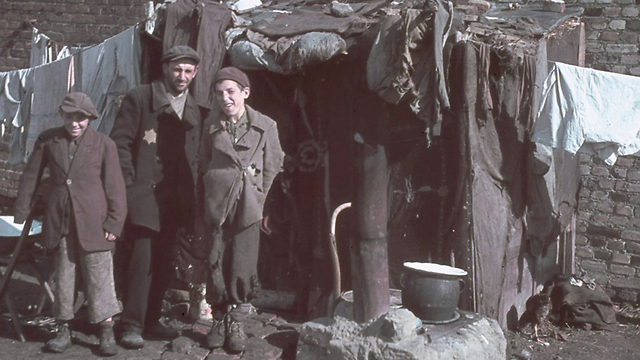Relations worsen as Ambassador Sergey Andreev suggests Soviet invasion of Poland was in self-defense; Poland: Ambassador ‘undermining historical truth.’
The Russian ambassador to Poland has sparked outrage for putting some of the blame for World War II on Poland, creating a new spat amid deepening tensions between the Slavic nations.
Russian Ambassador Sergey Andreev on Friday described the Soviet’s 1939 invasion of Poland as an act of self-defense, not aggression. The comment prompted Poland’s Foreign Ministry to declare Saturday that the ambassador “undermines historical truth” and seems to be trying to justify Stalinist crimes.

World War II began after Nazi Germany and the Soviet Union sealed a pact in 1939 that included a secret provision to carve up Poland and other parts of Eastern Europe. Germany soon invaded Poland from the West, followed by a Soviet invasion from the east 16 days later. Millions of Poles were killed in the war.
In an interview broadcast on the private TVN station, Andreev also said, “Polish policy led to the disaster in September 1939, because during the 1930s Poland repeatedly blocked the formation of a coalition against Hitler’s Germany. Poland was therefore partly responsible for the disaster which then took place.”
Poland’s Foreign Ministry expressed “surprise and alarm” at those comments, and Foreign Minister Grzegorz Schetyna summoned Andreev for a meeting Monday on the matter.
“The narrative presented by the highest official representative of the Russian state in Poland undermines the historical truth and reflects the most hypocritical interpretation of the events known from the Stalinist and communist years,” the ministry said in a statement.
Prime Minister Ewa Kopacz also expressed displeasure with the ambassador.
“The role of an ambassador accredited in a country should be to build to build harmony and friendly relations between countries,” Kopacz said.
Relations have never been easy since Poland, a former Soviet bloc nation, rejected Moscow’s control and embraced the West, joining NATO and the European Union. But tensions have been especially high since Russia annexed Crimea in 2014, a step that Warsaw has strongly condemned.
In other points of contention in recent days, Poland blocked a Crimean official hoping to attend an OSCE conference in Warsaw from entering the country, angering Moscow. Moscow has also protested a Polish town’s dismantling of a monument to a Soviet World War II general, threatening Warsaw with “most serious consequences” for that.
As reported by Ynetnews
